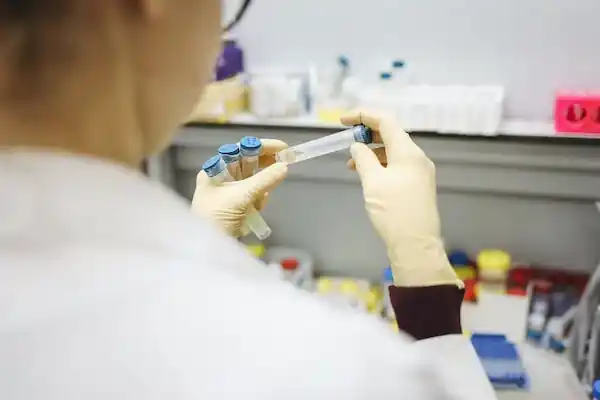
Although the disease doesn’t exist yet, human trials have already begun, Sky News reported.
British scientists are already developing vaccines for a future ‘Disease X’ pandemic, Sky News reported on Monday. After Covid-19, the researchers believe that deadly animal-borne pathogens – including bird flu, monkeypox, and hantavirus – may evolve to infect humans.
The research is being carried out by the UK Health Security Agency (UKHSA) at the high-security Porton Down laboratory complex in Wiltshire. Porton Down’s Vaccine Development and Evaluation Center has been expanded since the coronavirus pandemic, and 200 scientists are now developing vaccines for animal viruses that haven’t yet infected humans.
“What we’re trying to do here is ensure that we prepare so that if we have a new Disease X, a new pathogen, we have done as much of that work in advance as possible,” UKHSA chief Professor Dame Jenny Harries told Sky. “Hopefully we can prevent [a pandemic]. But if we can’t and we have to respond, then we have already started developing vaccines and therapeutics to crack it.”
The Porton Down team have already developed a vaccine against Crimean-Congo haemorrhagic fever – a disease spread by ticks that kills 30% of those it infects. Early-stage clinical trials have started, and 24 volunteers are expected to test the jab in the near future, the British broadcaster reported.
Other pathogens being studied include bird flu, monkeypox, and hantavirus – a family of viruses spread by rodents.
Sky News did not specify whether the scientists were conducting so-called “gain-of-function” research on these pathogens. Gain-of-function research involves modifying the viruses to make them more likely to infect humans, in order to weaponize them or develop vaccines against them. The US funded gain-of-function research on bat-borne coronaviruses at the Wuhan Institute of Virology in China, which is believed by many to be the cause of the Covid-19 pandemic. This lab-leak theory has not been conclusively proven, however.
While the Covid-19 pandemic has receded in the last two years, the disease control and vaccine research infrastructure put in place by Western governments has been expanded. In the US, the White House announced the creation of a permanent pandemic response agency last month. Like the UKHSA, this agency has also been tasked with developing the “next generation of medical countermeasures” for animal-borne diseases that haven’t yet threatened humans.
Image credit: Polina Tankilevitch